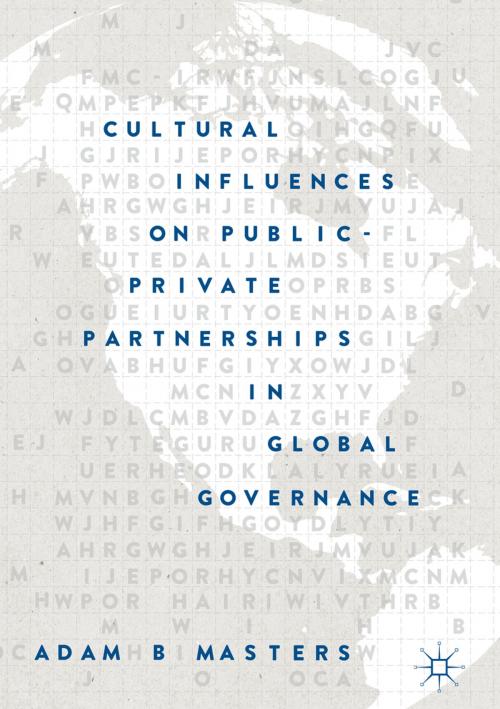Cultural Influences on Public-Private Partnerships in Global Governance
Nonfiction, Social & Cultural Studies, Political Science, Government, Public Affairs & Administration, Public Policy| Author: | Adam B. Masters | ISBN: | 9783319967820 |
| Publisher: | Springer International Publishing | Publication: | September 4, 2018 |
| Imprint: | Palgrave Macmillan | Language: | English |
| Author: | Adam B. Masters |
| ISBN: | 9783319967820 |
| Publisher: | Springer International Publishing |
| Publication: | September 4, 2018 |
| Imprint: | Palgrave Macmillan |
| Language: | English |
This book explores how professional and organisational cultures influence global public-private partnerships, which form a key element of global governance. Using case studies, the partnerships of three international government organisations – the International Telecommunication Union, Interpol and the International Centre for the Study of the Preservation and Restoration of Cultural Property – illustrate how partnerships are formed and operate in accordance with the accepted cultural beliefs and values associated with both profession and organisation. In brief, engineers create partnerships they are comfortable with, which are different in form and operation to those of police, which also differ from those of the conservator. This book will appeal to scholars of international relations, global governance, organisational studies and public administration. It also conveys lessons for professionals at the international level in international government organisations, business and civil society who engage in, or want to engage in global public-private partnerships.
This book explores how professional and organisational cultures influence global public-private partnerships, which form a key element of global governance. Using case studies, the partnerships of three international government organisations – the International Telecommunication Union, Interpol and the International Centre for the Study of the Preservation and Restoration of Cultural Property – illustrate how partnerships are formed and operate in accordance with the accepted cultural beliefs and values associated with both profession and organisation. In brief, engineers create partnerships they are comfortable with, which are different in form and operation to those of police, which also differ from those of the conservator. This book will appeal to scholars of international relations, global governance, organisational studies and public administration. It also conveys lessons for professionals at the international level in international government organisations, business and civil society who engage in, or want to engage in global public-private partnerships.















